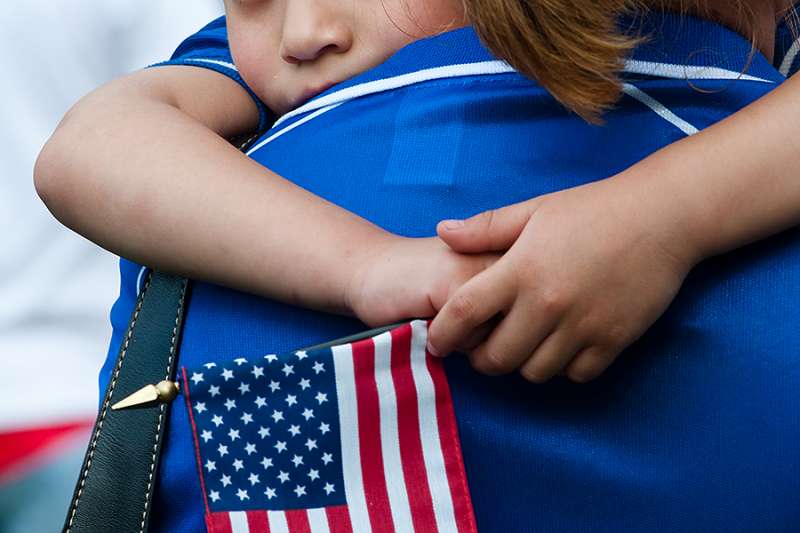Hundreds of undocumented migrant children and teens have been moved to a tent city in a Texas desert, months after Catholic leaders warned of the dangers of the plan.
In recent weeks, young immigrants in various states have been awakened in the middle of the night and loaded onto buses to be sent to the camp near the west Texas border town of Tornillo, about 35 miles southeast of El Paso.
Shelter workers, speaking anonymously to the New York Times, said children and teens are moved at night to help avoid escape attempts. They are given short notice before a move, in part to prevent them from panicking or trying to run away.
More than 1,600 of these undocumented migrants are moved to west Texas each week. The New York Times said the camp first opened in June for a 30-day period with a capacity for 400 children. In September the camp expanded to a capacity of 3,800, with plans to stay open through the end of the year. Those sheltered in Texas tend to be older children age 13 to 17 who are expected to be released sooner.
The children and teens are kept in groups of 20 and segregated by sex. They sleep in bunks. Instead of school, they are given workbooks but are not required to finish them. They have limited access to legal services.
The west Texas camp has portable toilets and air-conditioned tents provide space for housing, recreation, and medical care.
However, the tent city is not regulated. This is a contrast from other unaccompanied minors’ shelters that are licensed and monitored by state child welfare officials, with requirements for safety, education, and staff hiring and training.
Patricia Zapor, communications director for the Catholic Legal Immigration Network, Inc., had criticized the plan for the tent city in July remarks to CNA.
“Detaining children in any kind of setting is never a good idea for the children. It leads to all sorts of medical, emotional and developmental repercussions, even when they are detained with their parents,” Zapor said. “Detaining children away from their parents is an even worse idea, and in tents, in the harsh climate of Texas – that’s a recipe for disaster.”
Evelyn Stauffer, a spokeswoman for the Health and Human Services Department, discussed the west Texas camp.
“It is common to use influx shelters as done on military bases in the past, and the intent is to use these temporary facilities only as long as needed,” Stauffer, whose department is responsible for caring for these migrants, told the New York Times.
She said a “broken immigration system” is the larger problem that causes immigrant families and unaccompanied minors to be apprehended. Underage migrants in particular face a “hazardous journey” and are at risk of being trafficked or subjected to other exploitation and abuse.
There are over 13,000 detained migrant children in the U.S., a new record. Their numbers have increased 500 percent since last year. Some crossed illegally, while others are seeking asylum.
Shelters for underage migrants have been operating at 90 percent capacity since May. The Department of Health and Human Services estimates that since last year the average time they spend in custody has increased from 34 days to 59.
Shelter capacity is further strained by the Trump administration’s decision to separate children from their parents. This increased the numbers in underage shelter care by 2,500.
In June remarks at the opening of the U.S. Conference of Catholic Bishops, Cardinal Daniel DiNardo of Galveston-Houston, the conference president, criticized family separation at the border.
“Our government has the discretion in our laws to ensure that young children are not separated from their parents and exposed to irreparable harm and trauma,” he said. Calling families “the foundational element of our society,” he said they must be able to stay together.
Undocumented underage migrants are held in federal custody until they can be matched with sponsors, like relatives or family friends, until their legal cases can be resolved.
However, many sponsors are themselves undocumented migrants and they now fear that increased scrutiny from federal authorities will put at risk their ability to remain in the U.S.
In June, federal authorities said potential sponsors and other adults in their households must submit fingerprints, and this data would be shared with immigration authorities, the New York Times said.

